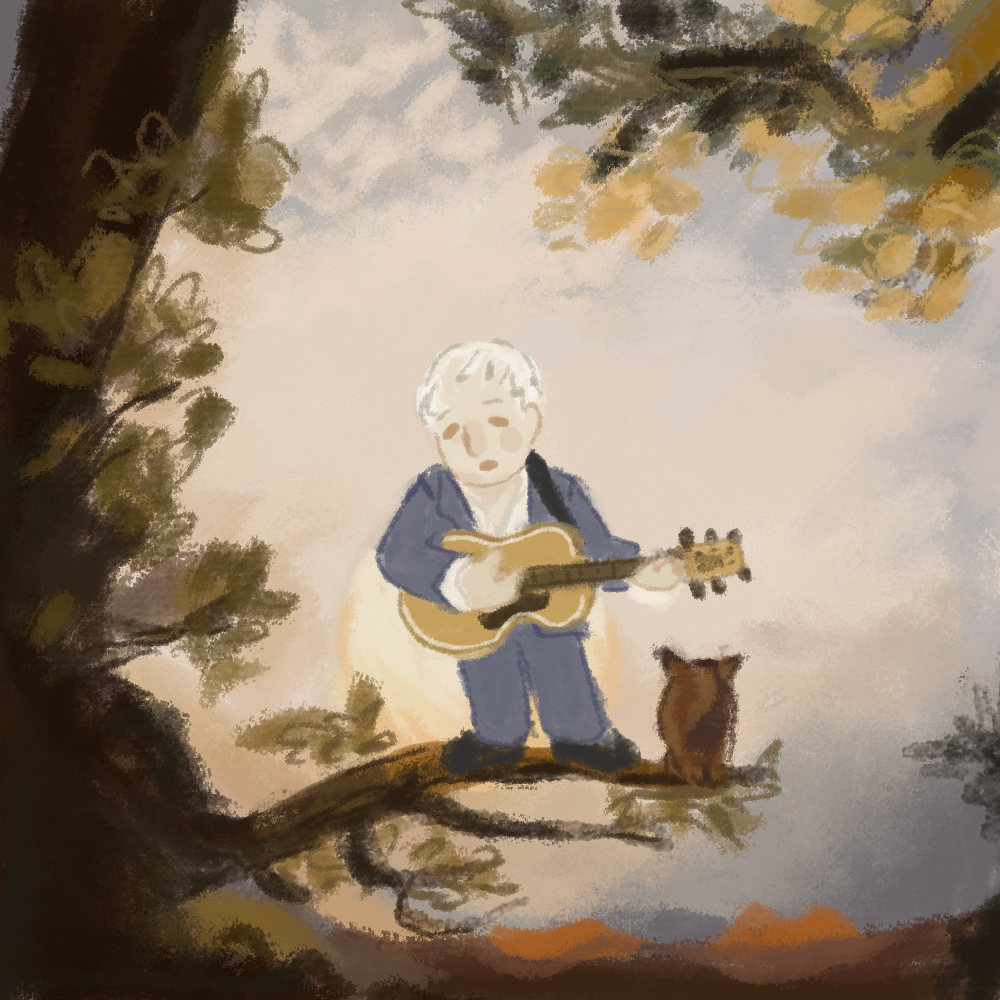Contains Spoilers
CW: Suicide
The film “Swiss Army Man” begins with Hank (Paul Dano) stuck on a remote island as he meets Manny — a dead body washed ashore (Daniel Radcliffe). The absurdist film centers around Hank as he tries to return to civilization after running away from home and being caught in a storm. Manny comes to life with the attention of Hank and exists as a consciousness within a physically dead body, allowing for the formation of an unlikely friendship. As Hank teaches Manny the concept of humanity and what the real world looks like, he uses Manny’s body as an assortment of tools to help him traverse through the forest in order to reach society again (hence, the title’s comparison to a swiss army knife).
The film constructs a unique, subliminal space that uses physical objectification as a lens for examining Manny’s capacity to become a subjective being. This framework prompts a relearning of assumptions about society and the nature of being human. To compare, other instances of physical objectification tend to contradict maintaining self-hood and instead create a separate distinction:
“Weekend at Bernies,” a comedy directed by Ted Kotcheff, follows two coworkers attempting to pretend that their murdered boss is alive by staging and moving his body. Throughout this film, Bernie, the dead boss, becomes a physical object in death. The process of his objectification is what removes his agency — in death Bernie loses his power and subjectivity as a person and instead becomes a dummy to manipulate and pose.
In general, supernatural possession within horror also functions as a distinction between objectification and agency, as the person is still alive but not functioning of their own accord. When the subject becomes possessed, they lose autonomy and become a conduit. As the subject regains control back over their body, they gain their consciousness back with it. The expulsion of a supernatural entity from the body of the subject, i.e. the ending of their body existing as a host and therefore an object, is the direct cause of regaining subjectivity.
Through the relationship created between Hank and Manny, “Swiss Army Man” transcends this objectification that deems the body as equal to its function . Manny’s introduction coincides with Hank trying to hang himself. As he is about to do so, an unknown body washes ashore, giving Hank hope and saving his life by giving him purpose again — a new resource to find civilization.
In turn, Manny owes his creation as a being to Hank. Hank continuously speaks to and physically interacts with the body throughout the night, accidentally bringing Manny to life the next morning. This relationship of saving and giving life between the two of them sets the tone throughout the film for an intense, emotional bond that is heavily reliant on this reciprocity of giving each other purpose.
As Hank uses Manny to survive the wilderness and find civilization, Hank teaches Manny about humanity and the processes of the outside world. Manny exists as a water vessel, a fire starter, a slingshot, and more. In this survivalist state, Hank learns to survive the wilderness through the discovery of Manny’s different capabilities and existing utilities; this primal, base education parallels Manny’s and acts as a representation for his newfound existence. Manny learns social survival skills from Hank and comes to understand how he exists as a subjective being among other people. Through Manny’s objectification and usefulness, Hank is able to continue living and teaching Manny human complexity and subjectivity.
As Manny discovers a photo of a girl, his lessons are contextualized, and he develops a relationship of objectification and humanity into one centering companionship and love. One of Manny’s “tools” develops as he learns about prospects of romance and sex. He gets an erection, which Hank realizes points in the direction of civilization. In order to keep traveling forward by way of erection, he must now play into Manny’s fantasies of women to develop and center his ideas around existence in relation to the concept of love. When Manny accidentally sees Hank’s lock screen of a woman named Sarah, he becomes obsessed with her. Hank leads him to believe the phone belongs to him, and that the woman was from his past life, so their journey gains a new purpose — helping Manny to remember his past life and reuniting with his mystery lover.
The river-crossing scene finalizes this connection between utility and love. As Hank dresses like Sarah and sets up pretend dates for Manny, this version of “Sarah” begins to become her own character, and a fake relationship between Manny and her blossoms. As this relationship slowly escalates, Hank and Manny continue traveling throughout the woods. They eventually reach a river, where Hank ties Manny to him and attempts to cross by crawling across an unsturdy pipe. He slips, and Manny’s dead weight pulls them towards the bottom.
In a pivotal montage, the scene switches between Hank and Manny and flashbacks of dates between Manny and “Sarah.” As they sink, Hank and “Sarah” lean closer to Manny’s face, ending with Hank and “Sarah” both finally kissing him. This kiss between Manny and Sarah is equated to Hank using Manny as an oxygen tank, solidifying the relationship between objectification as utility and not just subjectivity, but learning to love and the complexity of human emotion.
This newfound complexity opens Manny to heartbreak and betrayal in the climax of both Manny’s lessons and Hank’s survival. As Hank confesses that the phone is actually his, and that Manny never knew Sarah in life, a bear approaches their bonfire. It attacks them, and as Hank tries to use Manny to launch rocks, Manny is unable to. His sadness prevents him from helping Hank, and this failure in complying establishes a possibility for autonomy stemming from the newfound, full development of his humanity. The bear accidentally launches the two of them into a tree, where Manny has an existential crisis stemming from this betrayal and gives up on humanity, wishing he was never created. Hank falls to the ground during this revelation and breaks his leg, and the bear drags him away. Here, Manny and Hank both reach their own personal rock bottom in relation to each other — Manny learns about heartbreak, and Hank realizes that he is unable to survive without Manny.
Now that Manny has developed a fully-formed subjective sense of being, he can have agency in his objective (physical) sense of self. The primary shift in Manny’s state of being happens here — as Hank is being dragged away, Manny begins to move of his own accord and rolls into the bonfire to light himself on fire and scare the bear away. He shifts from a physical object of utility to a subjective being with autonomy in this scene. Most importantly though, Manny remains dedicated to acting with utility as his purpose — with his newfound agency, Manny himself employs his body as a tool to save Hank’s life. His purpose comes full circle here as Manny transitions from an object without subjectivity, to existing as an object learning subjectivity, to being a fully-fledged being possessing physical autonomy.
The transition period between being dead and “alive” exists as a paradoxical example of objectification, allowing for “Swiss Army Man” to demonstrate the process of learning survival skills for not only the wilderness but also for companionship within society. Manny’s physical state of being and process of education creates a unique lens that gives concepts of humanity and companionship a sense of novelty and beauty, creating an appreciation of the mundane.








Kyle • Apr 3, 2024 at 9:29 pm
Stumbled upon this analysis after watching the film.
This is brilliant. The subjectivity-objectivity relationship was a fantastic interpretation.